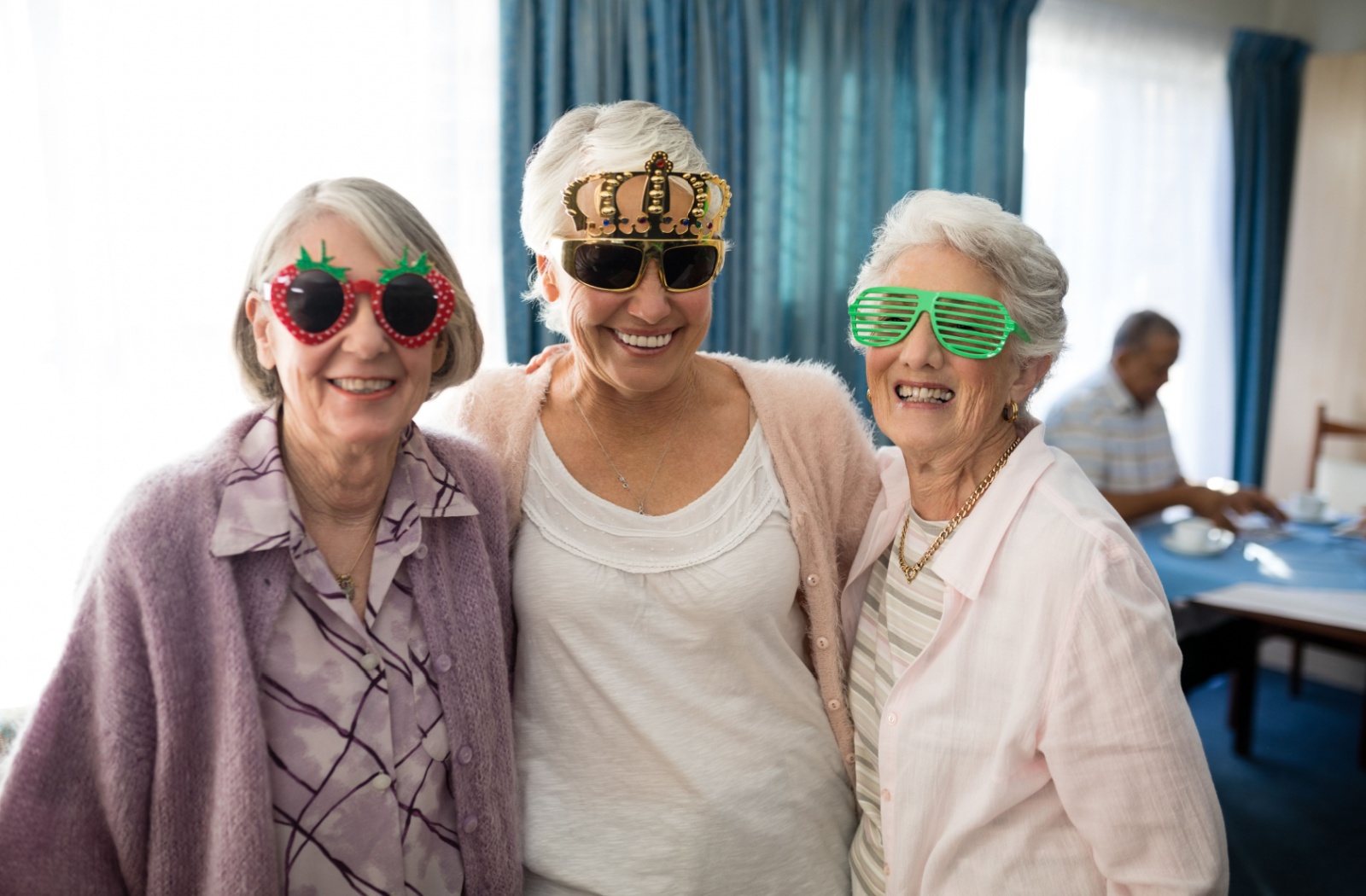While many residents in assisted living communities are over 65 years old, there is no definitive age at which a person should move to an assisted living community.
Determining the right time to consider assisted living for yourself or a loved one is a deeply personal decision, influenced by various factors ranging from health and safety to social and emotional well-being. While there’s no one-size-fits-all answer to the best age for assisted living, understanding the benefits and considerations can help guide this important decision-making process.
What Is Assisted Living?
Assisted living is all about creating a safe, supportive environment where seniors can enjoy life to the fullest while receiving the help they need. Imagine a place where your loved ones are surrounded by friends, engaging in activities they love, and getting the assistance they need with daily tasks like bathing, dressing, and medication management.
In an assisted living community, residents have private or semi-private apartments, so they can maintain their independence and personal space. At the same time, they have access to a range of services that make life easier and more enjoyable, such as:
- Housekeeping & laundry services
- On-site amenities, such as fitness centres & gardens
- Meal planning & preparation
- Medication management
- Community activities & clubs
- Scheduled outings & events
- 24/7 security
Personal Considerations
The decision to move to assisted living is unique to each individual and family. It often hinges on factors such as physical health, mobility challenges, cognitive abilities, and the level of support needed to maintain a fulfilling lifestyle.
It’s essential to approach this decision with compassion and open communication. Discussing concerns and preferences openly with family members, healthcare professionals, and trusted advisors can provide valuable insights and support. The resident and their families must decide if assisted living is the right choice.
Health & Safety Considerations
Assisted living communities offer a supportive environment where residents receive personalized care and assistance with daily activities such as bathing, dressing, and medication management. This level of care is often customized to each individual, so you or your loved one would receive the exact care they need to thrive.
Moving to assisted living can enhance safety and reduce risks associated with living alone, such as falls or delays in receiving medical assistance during emergencies. This could be important for seniors who live alone and far from family.

Social Engagement & Community
Assisted living communities foster a vibrant social environment with opportunities for residents to engage in activities, outings, and events tailored to their interests and abilities. For seniors who may feel isolated or lonely, assisted living provides companionship and a sense of community, promoting emotional well-being and a fulfilling social life. Not only do residents have the support and compassion of the team members, but they also have each other.
Quality of Life
Assisted living supports the independence of seniors while offering peace of mind to residents and their families. It allows individuals to focus on enjoying life without the stress of managing household chores or worrying about home maintenance.
The decision to move to assisted living is not about age but rather about maintaining a high quality of life and ensuring that individuals receive the care and support they need to thrive. When daily activities become too challenging, mobility begins to slow, or medical assistance is more frequent, assisted living communities are there to offer support.
Making the Decision
When considering assisted living, trust your instincts and prioritize what will best support your or your loved one’s overall well-being and happiness. Consult with healthcare providers, tour potential communities, and speak with current residents and their families to gain insights into the lifestyle and care offered.
Next Steps
There is no definitive “best age” for assisted living. The decision to move to a community should be guided by an individual’s needs, preferences, and circumstances. Assisted living can be a positive choice at any stage of life when it enhances safety, promotes social engagement, and improves overall quality of life.
At Parsons House Cypress, we offer unconditional love, we nurture personal growth, we celebrate life, and we make a difference. We would love to help you and your family with the transition to senior living. Contact us at any time with any questions! We’re here for you.


